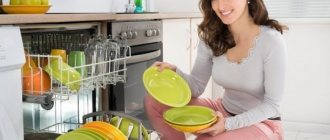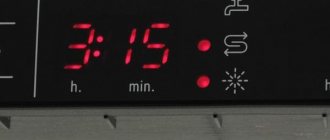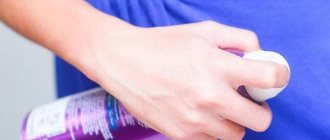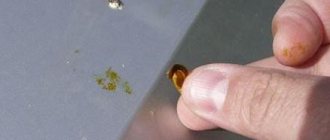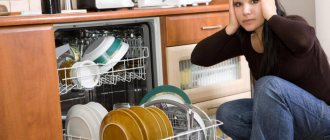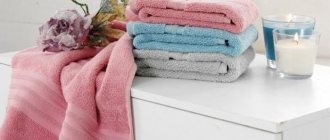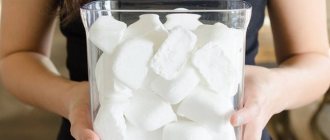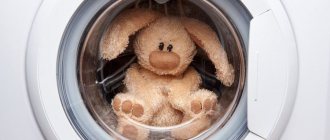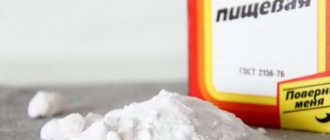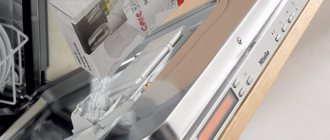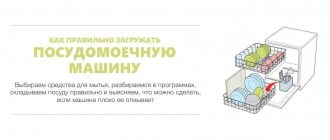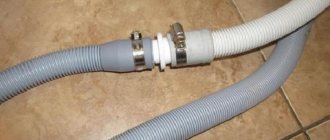A dishwasher (DMM) is good for everyone, but you need to buy special products for it. Powders, gels, salt, and tablets that are popular today are not cheap, so many housewives are interested in the question of alternative homemade formulations.
You can replace tablets purchased in the store with homemade briquettes. The technology is simple, anyone can do it. At the same time, the result is good, and real savings are achieved for the family budget.
What can replace special equipment?
All-purpose dishwasher detergents are not cheap. For example, a 1.3 liter bottle of Calgonit Finish gel costs 1,300 rubles. There are cheaper analogues - powdered and tablets. PMM owners who do not want to spend money on universal products can limit themselves to purchasing:
- Special salt;
- Rinse aids;
- Degreasers.
However, you still can’t do without general cleaning. Every month you need to carry out a “idle” wash with one of the effective detergents - special ones, substitutes like vinegar or citric acid, or compositions prepared independently.
Recipe No. 5: citric acid
There is another universal recipe for making detergent. To prepare it you need to mix the following ingredients:
- soda – 200 gr.
- borax -150 gr.
- sodium sulfate -500 gr.
- citric acid – 100 gr.
It is necessary to connect all components and move them carefully. This powder can be used to make tablets that can be used to clean kitchen appliances in the dishwasher. You can also dilute it with a small amount of water to make a liquid mixture.
It is preferable to use tablets rather than a liquid mixture. They are less aggressive and will remove plaque more carefully.
Is there any point in staying away from chemo?
Why look for substitutes for products produced specifically for PMM? Someone may recall the feminine logic - they say, buy an expensive dishwasher so as not to waste time washing dishes, and then refuse ready-made substances and manually prepare their substitutes.
But the truth, as always, lies in the golden mean - there are moments that should not be forgotten. Reasons why some dishwasher owners refuse "chemistry":
- You should only buy special products for PMM. And this is expensive.
- They contain substances that adversely affect the body.
- The natural product is not only environmentally friendly, but also inexpensive.
How to do it yourself
The most popular detergent for PMM - tablets - can be made at home. When creating the mixture, take care of your own safety - wear gloves.
Ingredients
You will find most of the ingredients for creating dishwasher tablets in your household. The missing components can be purchased at a hardware store or pharmacy.
Capacities
To make tablets, you need to take care of suitable containers. You can use ice cube trays. Naturally, this device cannot subsequently be used for its intended purpose.
Expert opinion
Irina. Housewife.
Ask a Question
As a rule, all ingredients are thoroughly mixed and placed in molds. After some time the mixture thickens. After this, it is better to transfer the homemade tablets into a container with a lid.
How much money does it cost per year?
Saving is one of the arguments for creating “folk recipes”. What amounts are we talking about? Costs depend on the type of special equipment:
- Tablet preparations - 6,000 rubles;
- Gel or powder product - 2000-3000 rubles. But when using them, you also need a rinse aid - plus 1000 rubles. Total 4000-5000 rubles.
A small family spends the same amount to pay for electricity for six months. There is a reason to think about saving.
What are homemade dishwasher substitutes made of?
The key components are surfactants that easily break down fat. All other components are aimed at enhancing the splitting effect, extinguishing foam, aromatization, uniform dissolution and preservation. Special products may contain acids, bleach, sodium silicate, which resists corrosion, brighteners, enzymes, thickeners and much more.
Knowing the composition, you can independently prepare a mixture for washing dishes in PMM. For what? It is possible to adjust the percentage of components, achieving maximum harmlessness. Homemade preparations are prepared based on:
- Soap;
- Citric acid;
- Boers;
- Lye;
- Mustards.
How to wash dishes in the dishwasher - homemade substitutes
If you don’t have chemicals at hand or you fundamentally don’t want to use them, turn to natural products. You can wash the dishwasher:
- Mustard. There is a lot of controversy regarding it. It is believed that mustard powder clogs the holes in the rocker arm. Opponents are confident that mustard is an excellent cleaner that allows you to reduce the frequency of disassembling and cleaning the device. Both opinions are correct. The point is the difference in the design and degree of grinding of the mustard seeds. If they are hand-ground, you may end up with too large fractions. If the grinding is good, then mustard will be the best natural remedy for cleaning dirty surfaces. It is cheap and environmentally friendly. Before loading the dishes into the compartment, they are slightly moistened and then covered with mustard.
- Baking soda. Removes grease, burnt marks and heavy dirt well. It is poured into the compartment, having first been mixed with borax in a 1:1 ratio.
- Laundry soap. A mixture is prepared from grated shavings - 25 g mixed with 0.5 liters of hot water, 4 tbsp. l. glycerin and 1 tbsp. l. alcohol/vodka. Absolutely harmless to health.
- Apple vinegar. It is not as aggressive as normal. Does not destroy rubber and aluminum parts. 50-60 ml of vinegar is poured into the compartment for bulk compounds.
You can also use ash, salt, crushed charcoal - they are especially good at cleaning glassware until it shines.
Recipe No. 3 mustard
In the Middle Ages there were no technologies that are available to us now. Scale, grease and other types of contamination were cleaned with mustard powder.
It is recommended to use this natural substance to treat dishes, as it foams well and effectively washes away food residues from it. To prepare this composition you should:
- 100 grams of mustard must be mixed with the same amount of boron.
- Everything must be moved carefully. As a result, you should get a thick consistency similar to sour cream.
- Then, you need to add baking soda or soda ash to the resulting composition.
Folk dishwashing detergent can be used repeatedly. But, you can only store it in a dark and inaccessible place.
Important! The mustard should be mixed thoroughly so that no lumps remain. Otherwise, it may get into the sprinkler nozzle and damage the equipment. In addition, stains may remain on the dishes; you will have to rinse them again.
Can I use washing powder?
Before the advent of effective special products for washing large and difficult-to-clean dishes, housewives used to use washing powder - it easily cleaned off any dirt. However, it absolutely cannot be used in PMM because:
- Creates a lot of foam - it interferes with high-quality washing;
- Contains toxic substances that remain on the surface of the plates even after repeated rinsing. If you wash dishes with powder and then heat food in it in a microwave oven, you can get poisoned or have an allergic reaction.
Flaws
There are several disadvantages to using a homemade liquid consistency.
- It is more convenient to use a purchased product. It is enough to open the cap and pour the required amount of liquid into the specialized compartment. Accordingly, the user does not have to spend his personal time preparing it.
- It is not always possible to invent a high-quality product. An incorrectly created composition may leave residue or impurities may not be washed off well.
- The resulting consistency may not look aesthetically pleasing.
- When using certain ingredients, such as mustard, cutlery often leaves an unpleasant odor when it comes out of the dishwasher.
- The most important disadvantage is the possibility of equipment damage if the composition is not mixed correctly and lumps form in it.
Should you make homemade dish detergent or buy it at the store? There is not and cannot be an exact answer to this question. Each housewife will independently determine what is more convenient for her to use, based on personal preferences, amount of free time and financial situation.
Do-it-yourself detergent compositions
Homemade recipe
It was invented by thrifty housewives. The annual cost is 700 rubles. To prepare you need to stock up:
- Soda - calcined Na2CO3 / food grade NaHCO3;
- Dry mustard;
- Inexpensive washing powder.
The ratio of soda, mustard and powder is 10:3:3. After pouring everything into a metal or glass container, store the composition in a cool, dry place. Shelf life: six months. Advantages:
- Cheapness;
- Easy to make - the ingredients are readily available and mixing them is not difficult.
The disadvantage is the presence of surfactants. We have already talked above about the dangers of this remedy. True, there won't be much of it here. The second disadvantage is that mustard can clog the impeller. The option is tolerable, it washes dishes well, but you need rinse aid so that there are no streaks left on the plates. It is advisable to alternate the “homemade product” with special tablets for PMM. If you use the homemade composition constantly, you will have to clean the device weekly.
Rinse aid substitute
Replacing rinse aid is much easier than replacing special detergents. A budget substitute is prepared from 100 ml of water, 50 ml of hand washing gel and 30 ml of ethyl alcohol. All this is carefully mixed, but not shaken. This must be done every time before use. Housewives claim that this composition is an excellent replacement for gel for washing not very dirty dishes.
Homemade tablets
It is impossible to make a complete substitute for tablets that combine several effects. But it is not difficult to produce an ersatz product of classic tablet drugs. You will need:
- Epsom salt - 100 g;
- Borax (can be bought at your nearest pharmacy) - 100 g;
- Freshly squeezed lemon juice - 100 g;
- Soda ash - 200 g.
Preparation procedure:
- Pour the ingredients into the container and gradually add lemon juice. The composition, which must be constantly stirred, will emit a hissing sound.
- When the mixture “goes silent”, it is poured into an ice tray.
- The mold is placed in direct sunlight or, in the worst case, on a hot radiator.
- When the cubes are dry, they are taken out - these are the finished tablets.
Such cubes easily replace cheap analogues produced specifically for dishwashers.
With hydrogen peroxide
You will need soda ash, hydrogen peroxide and hot water. For a glass - a teaspoon of both. This solution will not cope with burnt pans, but it will work well for forks, spoons, and plates.
With mustard
Ingredients: 250 g mustard, 125 g borax, 250 g soda ash. Store in the dark. This composition is good for both dishwasher and hand washing.
Homemade "chemistry"
This recipe is distinguished by the presence of chemical components. It is prepared not for the sake of environmental friendliness and safety, but to save money. This is an offer from amateur home chemists. In fact, this is also an ersatz product, a cheap analogue of store-bought chemicals. You will need:
- Neonol - 25 g;
- Sulfanol - 25 g;
- Soda (baking/ash) - 950 g.
The first two components are surfactants, they are commercially available. It turns out that a 30-gram dose contains only 1.5 g of surfactant. It is inconvenient to pour such a tiny amount into the compartment, so a powdery substance is used for the base. A kilogram of this home remedy costs only 50 rubles. It performs well in water with low hardness. For tough ones, be sure to add salt.
Recipes from users
№1
Consumers never stop sharing new recipes. There are especially many people who want to create effective substitutes for tablets. The latter are the most effective. You will need:
- Washing powder - 700 g;
- Soda - 300 g.
They are diluted with a small amount of water and poured into a mold, for example, for ice cubes. It is important here that the volume of the product does not exceed the dimensions of the dispenser.
№2
Required components:
- Children's powder - 80 g;
- Soda - 20 g;
- A little regular hand washing liquid.
Pour the mixture into molds. Suitable for Eco mode.
№3
Ingredients:
- Baking soda - 150 g;
- Borax - 200 g;
- Magnesia - 1500 g.
The components are mixed and adjusted to the desired consistency by adding citric acid/lemon juice. This composition is more environmentally friendly than the previous two.
When preparing tablets, it is advisable to wear gloves and even a mask - the components are too dusty.
№4
Homemade gel:
- Boil a liter of water;
- Add 50 g of laundry soap;
- Stir until smooth;
- Add 45 g of soda ash. Stir until it dissolves;
- Wait until the composition cools down;
- Add a few drops of essential oil;
- The product can now be used. It is poured into a container from which it will be taken as needed.
№5
Homemade rinse:
- Lemon juice - 5 tbsp;
- Essential oil - 2 tbsp;
- Glass cleaner - 1 tbsp.
What is included in dishwasher tablets?
Modern industrial products for PMM have a similar composition of chemical components that contribute to high-quality cleaning of dishes.
Chlorine
The most dangerous element of the tablets is chlorine, used to disinfect water and dishes. It can lead to serious illnesses. In the European Union, the use of some chlorine-containing substances is already prohibited.
Sodium citrate
Sodium citrate, designated E331, is needed to form foam and disinfect kitchen utensils. The substance is part of food additives approved in the Russian Federation.
Sodium percarbonate
Persalt or sodium percarbonate is a derivative of hydrogen peroxide and sodium carbonate. The substance has a bleaching effect, so it can often be found in powders for white laundry. The component makes washing dishes easier by breaking down dirt.
Sodium disilicate or “liquid glass”
Another component that softens water and prevents the deposition of salts on the internal parts of PMM is sodium disilicate or so-called liquid glass. In industry, the substance is used for anti-corrosion and antiseptic treatment. In detergents, sodium disilicate acts as a multifunctional substitute for phosphates.
Sodium gluconate
A well-known food additive, sodium gluconate, has a negative effect on the human body when used in excess. The substance is found in household chemical products and is also used in the metallurgical and oil industries. The main purpose of sodium gluconate is to prevent the formation of limescale.
Soda Ash
To soften hard water, you can find soda ash in the list of ingredients in dishwasher tablets.
Sodium bicarbonate
Baking soda or calcium bicarbonate is a powder used to soften water with high salt content.
Isooctyl glucoside
Washed dishes shine clean thanks to a chemical component such as isooctyl glucoside.
Sorbitol
The thickener sorbitol is used in detergents to give the composition uniformity.
Rapeseed oil methyl ester
The resulting surface tension of water is reduced with the help of a component such as rapeseed oil methyl ester.
Glycerol
Glycerin is used to create cosmetics and smoking liquid for electronic cigarettes. In household chemicals it is used as a thickener. Glycerin makes the product viscous and helps maintain this consistency.
Acetic acid
The scale that forms on the parts of the dishwasher over time is washed off thanks to acetic acid. In addition, the substance gives the dishes shine.
Amylase and protease
These components break down carbohydrate and protein compounds, so that even dried food remains are washed off easily.
Subtilisin
An element that helps get rid of fatty contaminants is subtilisin.
Various surfactants and A-surfactants
Surfactants clean dishes well due to the fact that they connect water and fat molecules.
But at the same time they are able to break down human sebum. Therefore, these substances can cause serious harm to health. Anionic surfactants are considered the most dangerous. The effect of these harmful components can be enhanced by phosphates, since they facilitate the penetration of substances into the human blood through the skin. According to Russian sanitary standards, the concentration of surfactants in household chemicals should not exceed 5%.
Have you set the water hardness in PMM?
Yes, of course. No.
Advantages and disadvantages
The main advantages of homemade gels and tablets are low cost and safety. The user at least knows what he uses to wash plates and cups. The disadvantage is that it takes time. It is much easier to buy everything you need in a store. The appearance of homemade products is also not particularly attractive, and they do not last long. And you need to calculate the dosage yourself.
Advantages
There are five of the most effective proven recipes for folk remedies suitable for processing kitchen utensils. Why is it worth using a folk invention rather than using a gel that is sold in a store? There are several reasons:
- This is a very economical option. The cost of any homemade product does not exceed 100 rubles, and its volume will last for several months.
- If it runs out, then don’t run to the store. You can create a cleaning ingredient at any time.
- The composition can be changed independently, depending on your own preferences.
- This is an excellent option for those housewives who care about their health. She will see for herself what is included in it. You will be sure that there are no chemical additives in it.
